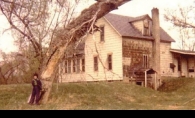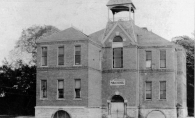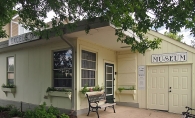It’s no surprise that Betty Peck of Shorewood is known as the human encyclopedia. After all, she’s been a fixture of the Excelsior-Lake Minnetonka Historical Society (ELMHS) for nearly 40 years, and has been witness to many changes in the lake-area community. “I am blessed with a tremendous memory,” says Peck, who at 85 is the oldest active member of the society. But before Peck was a veteran of the ELMHS, she put in many years of service growing the nonprofit and preserving items of historical interest.
The historical society was formed in 1972 by a group of passionate and dedicated women who wanted to preserve and share the lake-area history for generations to come. ELMHS quickly became a treasure trove of collectables and artifacts, as people were happy to contribute to the preservation of their local history. Peck, who joined in 1974 and became treasurer shortly thereafter, remembers how “the history of the area was very important to [the community] because for many of them it was their birth place, where their families were buried; it was their home.
Although Peck wasn’t originally from Excelsior, she married into a family from the area and quickly became fascinated by its history, which is rich with orchards, sailing and tourism. People brought in trinkets passed down for generations, items from the old amusement park and even a famous sailboat: the Onawa. With so many artifacts, the society set up an archive in the basement of old City Hall and began fundraising, publishing books and providing historical displays to educate the community. Peck, who was one of the youngest members at the time, has been witness to all of the hard work that goes into maintaining a volunteer-only nonprofit for 38 consecutive years. “It was quite a feat,” she says.
Today, the ELMHS continues to thrive, although much has changed since the early years in City Hall. Now the archives are housed in the basement of an old schoolhouse—the perfect location since it’s just down the street from the museum and the Wyer/Pearce House, one of a handful of Excelsior buildings on the national register.
Former president Kathy Endres notes that it’s harder to find volunteers since many women work full-time and people in general are busier these days. Back in the 1970s, “there were a lot more women’s groups, and people joined these groups as their social [outlet],” she says. But this doesn’t mean the historical society was just a casual women’s group; these women were professional and dedicated, many of them treating their volunteer work like a full-time job. Lisa Stevens, who has previous experience in nonprofit work, was impressed by the set-up and organization when she began volunteering in the archives.
Thanks to the meticulous organizing from the early years, a legacy grant and the onset of new technology, the volunteers at ELMHS can use new scanning equipment to digitize documents instead of hand indexing old newspapers and typing up diaries. “This is a new era,” says Endres. “We’re working on computerizing and making everything available on our website … so it will be preserved forever.”
But nothing can take the place of first-person historical accounts, which is one of many reasons why Peck remains a crucial member of the team. “I always joke that we need to digitize Betty’s brain,” says Stevens. “You sometimes really need the human context, and as the population ages, that gets lost.”
Peck continues her role as treasurer, can be found at the archives every Wednesday morning and is always on-call to answer the phone. “Some people do crossword puzzles and some people do research,” jokes Stevens. But Peck understands the value of preserving history, both for the community and herself. “I think it’s one of the things that has kept me who I am,” Peck says.
&
To join the ELMHS or learn more, visit elmhs.org.









